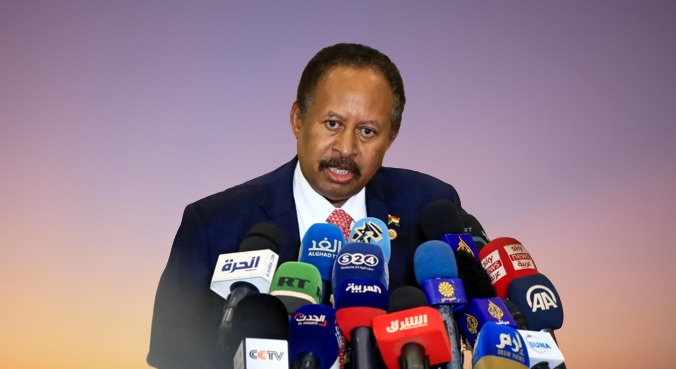
Diplomacy (Tagadom ``Progress``) and What to Expect Domestically
Mariam Abashar
The Coordination of Democratic Civil Forces (Progress) intensified its movements and communications with civil forces and armed resistance forces, both signatories and non-signatories to the Juba Peace Agreement, to achieve its goals and form the largest civil democratic coalition against war, and coordinate to lay the foundations for the formation of the civil state for which the glorious December revolution took place.
At a time when it is expected that parties from the Jeddah platform will be close to signing an agreement for a permanent ceasefire, information from sources close to Jeddah, the venue for negotiations between the army and the Rapid Support Forces, revealed that both sides are continuing discussions to create a conducive atmosphere and bridge the trust gap, stop mutual accusations and escalation, and control the content of media discourse for both.
The sources explained that the joint mediation team "proposed a draft for the general principles, cessation of hostilities, and the joint monitoring center for the ceasefire to both parties, as well as suggesting the formation of a joint sub-committee to discuss the details of the contentious issues related to the ceasefire."
As part of expanding the democratic civil base, news agencies carried information about a meeting that took place between Dr. Abdullah Hamdok, the resigned Prime Minister and the President of the Preparatory Leadership Authority for the Coordination of Democratic Civil Forces known as (Progress), and Abdul Wahid Mohamed Noor, the President of the Sudan Liberation Movement. Although little information is available about what was agreed upon, what was published confirmed that the meeting came within the framework of building the broadest democratic civil front that contributes to ending the war and re-establishing the civil state.
The writer, political analyst, and diplomat, Ambassador Jamal Mohamed Ibrahim, sees the movements of (Progress) as a necessary effort and endeavor. However, it will not be enough without regional support and international assistance. He pointed out the shortcomings in the performance of regional organizations, such as the Arab League, the African Union, and IGAD, and other efforts complementary to international efforts. He added, "Unfortunately, interest in the tragedy of Sudan has waned due to the war in Gaza."
Ibrahim pointed out that bringing together the civil and political spectrum in Sudan requires building trust among all political forces and armed movements, which must lay down their weapons and turn to consolidate political activity as an alternative to violence so that everyone can build a transitional period that leads to elections after an appropriate and reasonable period.
Regionally, the civil forces continue their efforts to mobilize support and endorsement to stop the war and form the civil front, including the African Union. A delegation from the Coordination, including Engineer Siddiq Al-Sadiq Al-Mahdi, Maulana Ismail Al-Taj, and Saleh Ammar, met with Dr. Sayed Abbas Ahmed, the special presidential envoy of the President of the Comoros, who is the current president of the African Union, Ghazali Othman.
The meeting discussed the efforts made regionally and internationally to stop the war in Sudan, support the Jeddah platform, and the founding conference of the Coordination of Democratic Civil Forces, and unify the broad civil front to stop the war and restore the democratic civil path.
In fact, civil forces are expected to play a pivotal role in the political scene in the coming period through national, international, and regional mobilization to stop the war and pressure both sides of the war. However, the success of these civil forces efforts depends on the unity of all the revolutionary forces.
The diplomatic expert and former foreign ministry spokesperson, Ambassador Al-Sadiq Al-Maqali, believes that the goal of the movements of civil, political, and revolutionary forces outside Sudan is to seek the most effective ways to stop this futile war. It also aims to emphasize that these forces must prepare for the post-war stage, restore the path of democratic transformation, and reach consensus on a roadmap that brings together all supporters of the revolution and democratic transformation, and put an end to this vicious circle of military coups.

